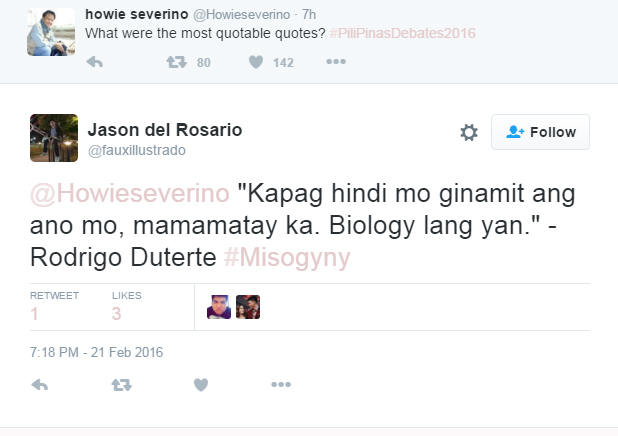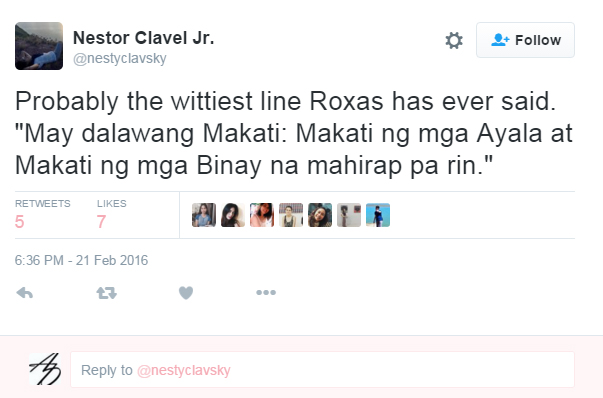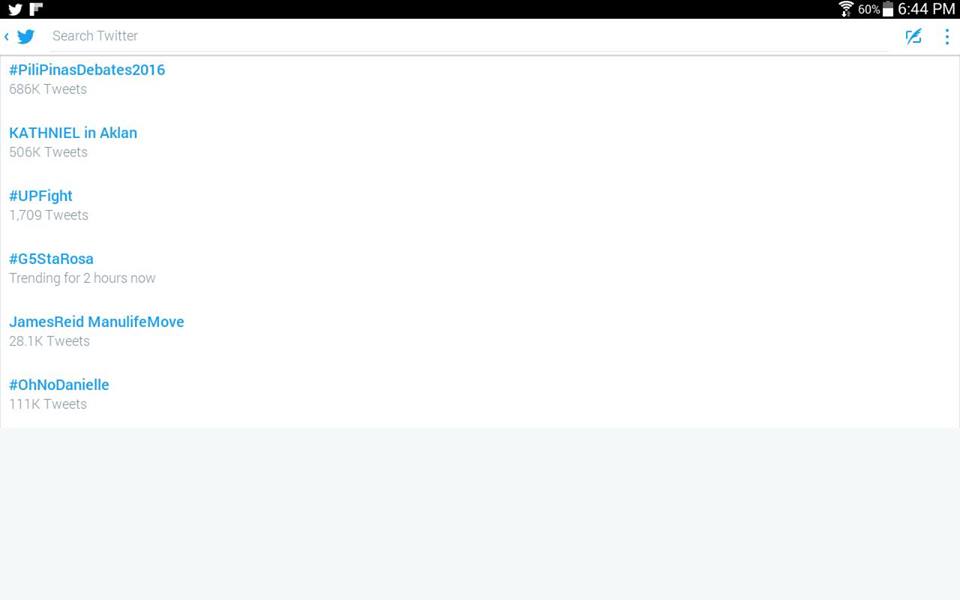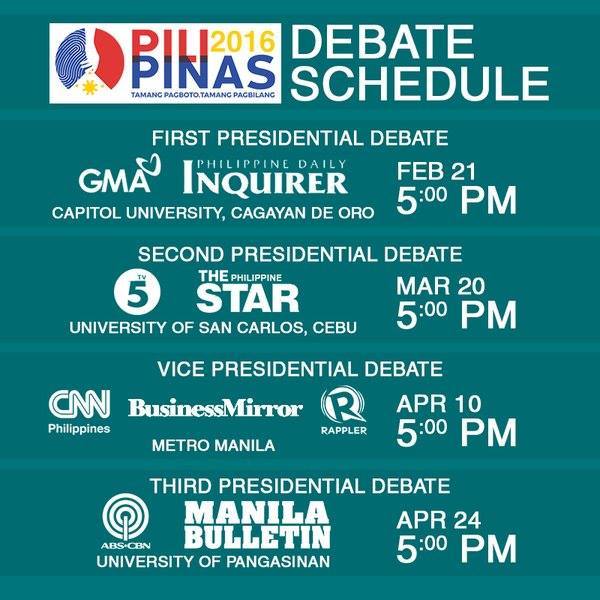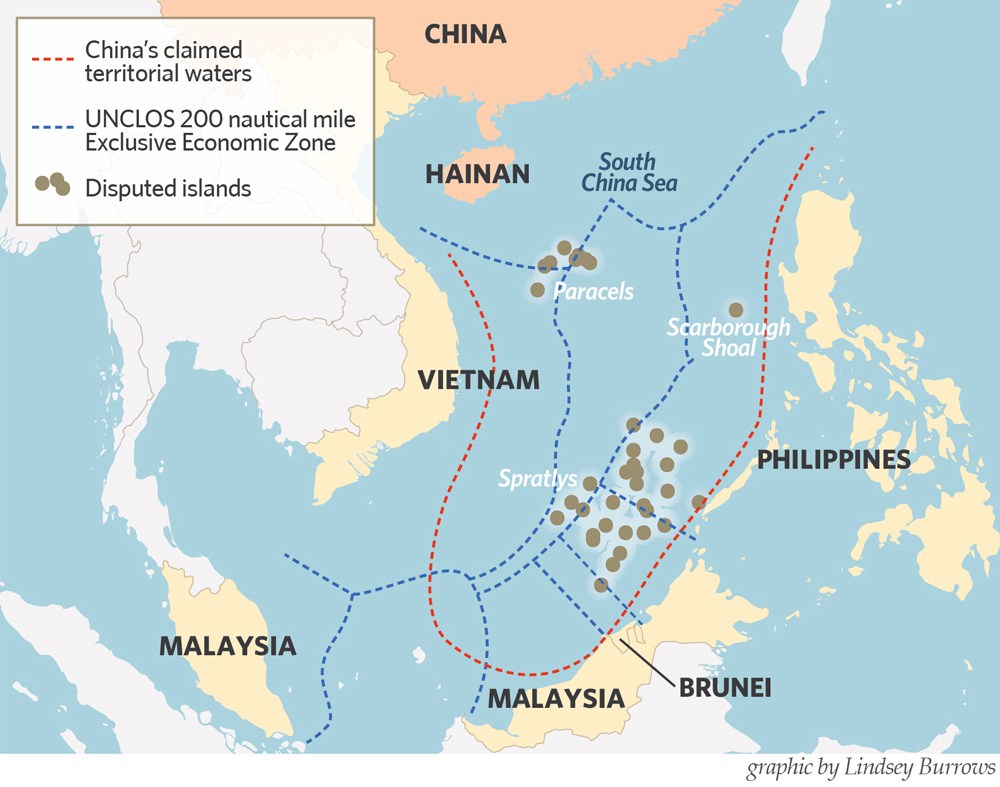Some Thoughts on the First PiliPinas Presidential Debates 2016 #PiliPinasDebates2016
by Tess Termulo, M.D. as originally posted at The Atheist Doctor
FULL VIDEO: First Presidential Debate of 2016 elections in Cagayan de Oro City
I was at the viewing party hosted by Blogwatch and #Juanvote last February 21, 2016, Sunday, at Commune Cafe+Bar. Aside from being excited to see fellow bloggers, I’m quite stoked with the idea of watching the first of the presidential debates with similarly-interested individuals. It was a viewing party, as people called it, like when people are watching sports or any other historic events shown via broadcast. Also, to make use of the time productively, the audience was asked to take note of information divulged by each candidate that needed to be fact-checked.
I will not anymore delve in the specific details of what happened during the debate. Rappler provides more than adequate coverage of the event and most probably, in a few days, a full recording of the whole event would be uploaded in Youtube.
I would just like to list down my thoughts regarding the whole event and my suggestions/recommendations.
First, I HATE THE FORMAT. There were three rounds: Round 1, Track record and Performance; Round 2, Poverty and Development, Round 3, Mindanao Issues, and lastly, Closing Statements. The five Presidentiables (Binay, Duterte, Poe, Roxas, Santiago) were tasked to answer questions given to them under 90 seconds. And per question asked, only two of the five candidates were given the opportunity to answer, of which the pairings were picked by random prior to the start of each round of questions. Although the event was marketed as a “debate”, the format speaks for itself; it is NOT a debate. It seemed to me more like a question and answer portion in a beauty pageant. If the event was a debate, it should have given opportunities to ALL candidates to present their argument for a specific issue. It would have been better if the network chose key issues of national importance or controversy and divided the candidates depending on their stance (pro or anti). Perhaps, if they discussed a topic like divorce, marriage equality or the territory issue with China, they could have elicited more interesting talking points, instead of having the candidates left in the situation wherein they couldn’t really give a rebuttal because they agree entirely with the given answer of the opponent. Also, ninety seconds will never be enough for a candidate to adequately illustrate and present arguments that can convince an audience. This kind of setup only invites cleverly-crafted soundbites that easily impress the gullible and the undiscriminating. One need only look at how Duterte addressed questions thrown at him about his womanizing and his idea of being a model for the youth: “Biology lang ‘yan“.
Personally, though, I think it is an unfair and inappropriate question, considering the event. But he could have answered this question in such a way that it would be more favorable for him. But for those who are easily impressed, the answer garnered quite a lot of laughs and claps from the audience and the netizens.
On the upside, though, the format gave opportunities for candidates to take some well-aimed swipes at one another.
Second, if GMA network and COMELEC really wanted this to be interesting and productive for Filipinos, they should have taken advantage of the high social media engagement as exhibited by the number of tweets made with the hashtag #PiliPinasDebates2016 and the number of FB users talking about the topic.
Almost 700,000 tweets were made with the hashtag #PiliPinasDebates2016 and this screenshot was taken in the middle of the event. GMA claims that the PiliPinas Debates 2016 generated one million tweets in its entirety and trended worldwide. Also, GMA reported that 40% of those who engaged in discussions of the debates were 18 to 24-year old Facebook users; 31% were aged 25-34 and that there were more women than men discussing the event (58% vs 42%). But the problem is that, even though the network and COMELEC made a disclaimer earlier during the event that they picked the questions asked to the candidates, they could have used this high social media engagement to gather questions and reactions from the people themselves who are watching and reacting to what the candidates were saying. This could have brought the discussion to a higher level of productivity and understanding, if the network and COMELEC aimed to educate Filipino voters. There were a lot of interesting insights from social media posts that could have pushed the envelope further. I am just wondering if the same format for the “debate” will be used in the next scheduled debates all over the country (see the schedule below).
Third, since the network and COMELEC put a disclaimer that they exercised editorial responsibility regarding the questions, it could have improved the whole debate if the questions asked were those that concern national issues or questions that are important and of concern to ordinary Filipinos.
Fourth, Mike Enriquez and Jessica Soho were good hosts. But if it was a debate (and should have been a debate), then it did not need hosts; it needed proper and competent moderators. During the entire event, they seemed to me tasked to read the questions and nothing more. They could have done a better job elevating the discussion by directing it properly and asking appropriate follow-up questions. I would have preferred a more serious atmosphere, to be honest.
Fifth, I didn’t think the “debate” enabled me to choose a candidate. On the contrary, I became more unsure if I could actually vote for any of them.
I am not sure if health problems were still bothering her, but I truly miss Miriam Defensor-Santiago‘s brilliance and witty comebacks. There were questions in which she responded by telling her opponent that there are no funds to be spent on what her opponent is proposing as a solution to the country’s problem. She visibly got flustered when asked about how her health problem will be a burden to her, if she got elected as president. She was also trembling at times and at the end of the event, she seemed too weak that she needed to place her hands on Duterte to help her walk towards the front part of the stage. Her closing statement was too patronizing. I loved it, however, when she stood her ground against Binay during their anti-dynasty discussion.
Binay was actually uninteresting. He managed to mention most of the time, though, that Makati improved during his stint as mayor. It was notable, though, that he would only mention his “achievements” as a mayor, but never mentioned anything that he accomplished as the vice-president. Boldly, he claimed that he grew up poor. But, during the first question about his continually growing assets since he started government service, he claimed that much of the lands reported in his SALN (Statement of Assets, Liabilities, and Net Worth) were inherited. How can he claim that he grew up poor when he even started “inheriting” land properties as young as 21 years old? And he was not able to properly address the question regarding political dynasties. It is so obvious that he wanted his entire family in key positions of the government.
Duterte was his usual candid self, although a bit more formal. I was expecting him to give more substantial answers in Round 3, which concerned Mindanao issues. But he was able to express his desire to bring justice to the Moro people and for this reason, he said he is pro-BBL (Bangsamoro Basic Law). He was also able to mention that, in his view, Miriam Defensor-Santiago is the only one of two candidates qualified enough to be President of the country. There is certainly “love” between the two, as both also share the idea that giving Marcos the chance to run the country is a good idea. I hated the fact that Duterte kept reiterating his promise that he will solve the corruption, crime, rice cartel, and drug problems of the country in the first 3 to 6 months of his presidency. This just sounded so trapo, and I cannot fathom why people keep buying into this promise, which obviously wouldn’t be the same response, if it were a different candidate promising it.
Roxas had much of the rhetorics, as expected. But, to be fair, he kept focus on answering the questions (albeit using flowery language in the process, which most probably would be a good source of future FB memes again). I love it however, when he took a swipe at Binay for mentioning Makati too many times during the whole event. If only he could be just as funny more frequently, he wouldn’t seem too trying hard. He got flustered when asked about the Yolanda issue, though. I believe he could have been able to answer it favorably, if he focused on telling the audience what were the RIGHT things he did during that time, instead of trying to establish, in defense, that he never left the Filipino people.
Poe was a pleasant surprise. I was expecting that she’d get crushed in the debate. However, it seemed like she did her homework well, perhaps, trying to compensate for the lack of experience. She was diplomatic and focused during the entire debate. The audience was receptive to the ideas she imparted (and perhaps, the immaculate white dress helped her in that). Her research team and whoever coached her with her speech should be complimented. Her efforts in preparation is commendable, but I am still unsure whether it is enough to qualify her as the country’s next president.
Overall, I am glad that, based on the social media metrics, Filipinos have shown adequate interest in matters of national importance like the upcoming elections. It is definitely heartening to see that the hashtag #PiliPinasDebates2016 trumped the trending KathNiel topic (it is unbelievable and depressing that KathNiel would generate as much as 500k tweets!). I would definitely watch out for the next set of events/debates, with hopes for more improvement (topics, debate format) and further voters’ education.

